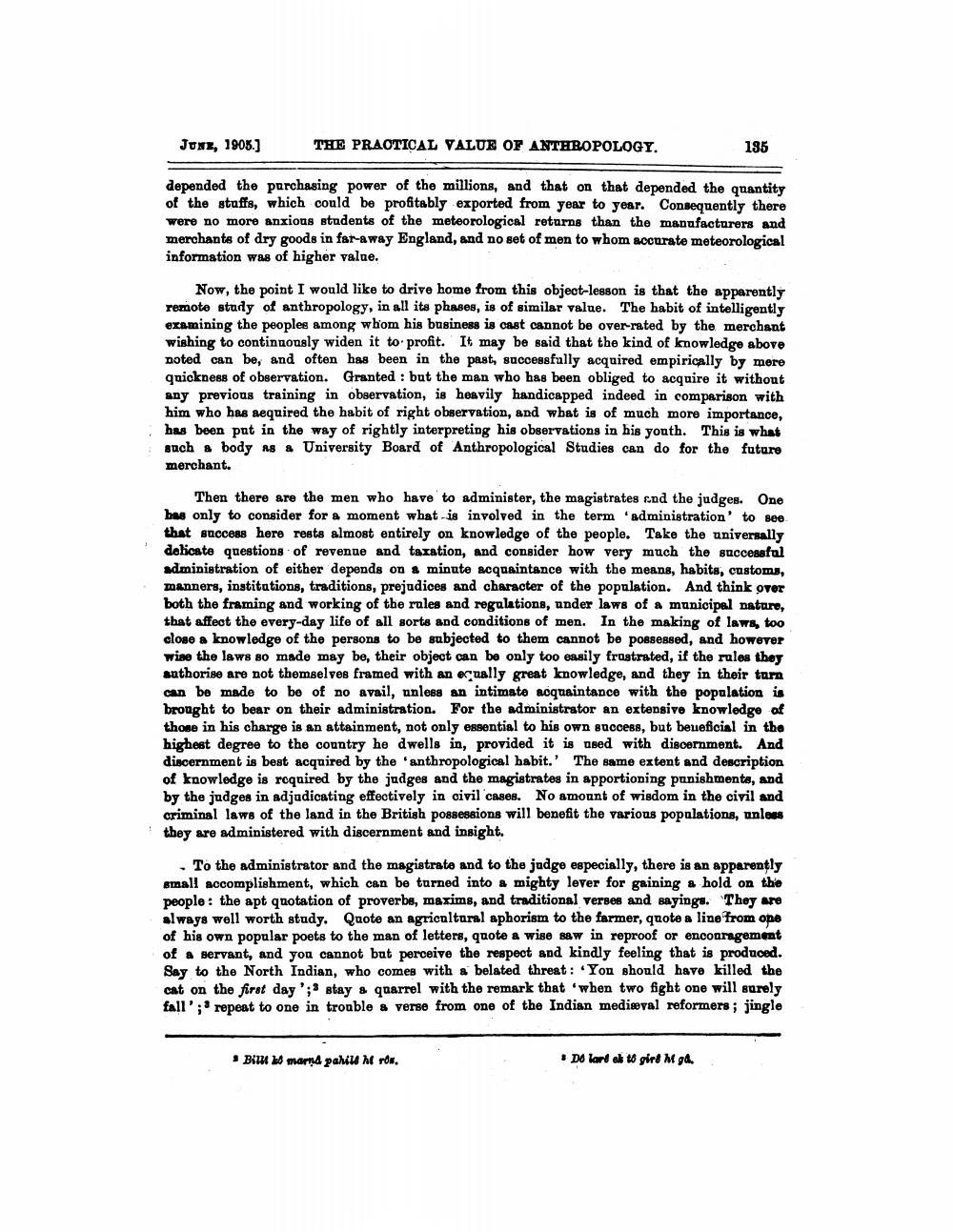________________
JUNE, 1905.]
THE PRAOTICAL VALUE OF ANTHROPOLOGY.
135
depended the purchasing power of the millions, and that on that depended the quantity of the staffs, which could be profitably exported from year to year. Consequently there were no more anxious students of the meteorological returns than the manufacturers and merchants of dry goods in far-away England, and no set of men to whom accurate meteorological information was of higher value.
Now, the point I would like to drive home from this object-lesson is that the apparently remoto study of anthropology, in all its phases, is of similar value. The habit of intelligently examining the peoples among whom his business is cast cannot be over-rated by the merchant wishing to continuously widen it to profit. It may be said that the kind of knowledge above noted can be, and often has been in the past, successfully acquired empirically by mere quickness of observation. Granted : but the man who has been obliged to acquire it without any previous training in observation, is heavily handicapped indeed in comparison with him who has aequired the habit of right observation, and what is of much more importance, has been put in the way of rightly interpreting his observations in his youth. This is what such a body As & University Board of Anthropological Studies can do for the future merchant.
Then there are the men who have to administer, the magistrates and the judges. One has only to consider for a moment what is involved in the term 'administration to see that success here rests almost entirely on knowledge of the people. Take the universally delicate questions of revenue and taxation, and consider how very much the successful administration of either depends on a minute acquaintance with the means, habits, customs, manners, institutions, traditions, prejudices and character of the population. And think over both the framing and working of the rules and regulations, under laws of a municipal nature, that affect the every-day life of all sorts and conditions of men. In the making of laws, too close a knowledge of the persons to be subjected to them cannot be possessed, and however wiae the laws 80 made may be, their object can be only too easily frustrated, if the rules they authorise are not themselves framed with an equally great knowledge, and they in their turn can be made to be of no avail, unless an intimate acquaintance with the population is brought to bear on their administration. For the administrator an extensive knowledge of those in his charge is an attainment, not only essential to his own success, but beneficial in the highest degree to the country he dwells in, provided it is used with discernment. And discernment is best acquired by the 'anthropological habit.' The same extent and description of knowledge is required by the judges and the magistrates in apportioning punishments, and by the judges in adjudicating effectively in civil cases. No amount of wisdom in the civil and criminal laws of the land in the British possessions will benefit the various populations, unless they are administered with discernment and insight.
- To the administrator and the magistrate and to the judge especially, there is an apparently small accomplishment, which can be turned into a mighty lever for gaining a hold on the people: the apt quotation of proverbe, maxims, and traditional verses and sayings. They are always well worth study. Quote an agricultural aphorism to the farmer, quote a line from one of his own popular poets to the man of letters, quote a wise saw in reproof or encouragement of a servant, and you cannot but perceive the respect and kindly feeling that is produced. Say to the North Indian, who comes with a belated threat: Yon should have killed the cat on the first day'; stay & quarrel with the remark that when two fight one will surely fall'; repeat to one in trouble & verse from one of the Indian medieval reformers; jingle
• BITU marni pamu Mror.
• De larte te girt Mode




